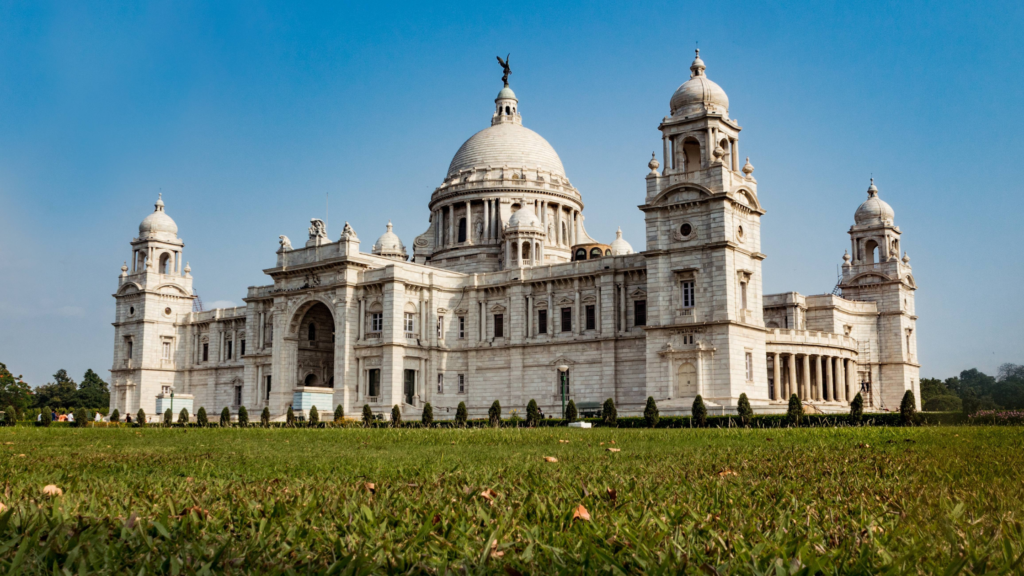The Olympic Games are more than just a sporting event; they are a celebration of the human spirit, resilience, and unity. As one of the most anticipated events globally, the Olympics bring together athletes from around the world, all vying for the glory of being the best in their field. But beyond the medals and records, the Olympics are filled with fascinating stories, historical milestones, and quirky traditions. Here are 25 interesting facts about the Olympics that will make you appreciate this global phenomenon even more.
1. Did You Know the Olympics Have Ancient Roots Dating Back Over 2,700 Years?
The Olympics we know today have their origins in ancient Greece, specifically in Olympia. The first recorded Olympic Games took place in 776 BC, making them over 2,700 years old. These games were held in honor of Zeus, the king of the Greek gods, and were as much a religious festival as they were an athletic competition.
2. From Cooks to Champions: The Story of the First Olympic Winner
In the very first ancient Olympic Games, the winner was a cook named Coroebus of Elis. He won the only event at the time, the stadion race, which was a sprint of approximately 192 meters. His victory is etched in history as the first recorded Olympic champion.
3. The Ancient Olympics Were Quite Different—There Were No Gold Medals!
In the ancient Olympics, victors didn’t receive gold, silver, or bronze medals. Instead, they were awarded olive wreaths made from the sacred olive tree of Olympia. The prestige of winning was immense, and the wreath was a symbol of honor and glory.
4. Women Were Banned from Competing—and Even Watching the Games
The ancient Olympics were strictly a male affair. Women were not allowed to compete, and married women were not even permitted to attend the games. The only exception was for the priestess of Demeter, who had a special seat at the games.
5. The Modern Olympics Were Revived Thanks to One Man’s Vision
The Olympics we celebrate today were revived by Baron Pierre de Coubertin, a French educator and historian. He was inspired by the ancient games and envisioned a modern version that would promote peace and unity among nations. His dream became a reality with the first modern Olympic Games in Athens in 1896.
6. From a Humble Beginning: The First Modern Olympics Were Surprisingly Modest
The 1896 Athens Olympics were modest by today’s standards. Only 14 countries participated, with about 241 athletes competing in 43 events. Despite the small scale, it marked the beginning of a new era for global sports.
7. The Olympic Motto Is Simple Yet Powerful—Do You Know What It Means?
The Olympic motto is “Citius, Altius, Fortius,” which translates to “Faster, Higher, Stronger.” This phrase encapsulates the essence of the Olympic spirit, encouraging athletes to push their limits and strive for excellence.
8. Ever Wondered What the Five Olympic Rings Represent? It’s More Than Just a Logo
The iconic five interlocking rings of the Olympic symbol represent the union of the five inhabited continents—Africa, the Americas, Asia, Europe, and Oceania. The colors of the rings—blue, yellow, black, green, and red—were chosen because every national flag in the world contains at least one of these colors.
9. The Olympic Flame Is More Than Just a Spectacle—It’s a Link to Ancient Traditions
The tradition of the Olympic Flame dates back to the ancient Greeks, who kept a sacred flame burning throughout the games. The modern Olympic Flame was reintroduced at the 1928 Amsterdam Games and has since become one of the most enduring symbols of the Olympics.
10. How Did the Olympic Torch Relay Begin? It’s a Journey of Unity Across Continents
The Olympic Torch Relay was first introduced in the 1936 Berlin Games. The torch is lit in Olympia, Greece, and then carried by a series of runners to the host city. This journey symbolizes the continuity between the ancient and modern games and the shared spirit of international friendship.
11. The First Winter Olympics Took Place in a Small French Town—And Changed the Games Forever
The first Winter Olympic Games were held in Chamonix, France, in 1924. These games featured events like skiing, bobsleigh, and figure skating. The success of the Winter Olympics added a new dimension to the Olympic tradition, celebrating winter sports and athletes.
12. Did You Know That the Olympics Have Been Broadcast on TV Since the 1930s?
The 1936 Berlin Olympics were the first to be televised, allowing people to watch the games live for the first time. However, the broadcasts were limited to local audiences in Berlin. Today, billions of people around the world watch the Olympics on their screens.
13. Michael Phelps Made History with His Medal Haul—But Do You Know How Many?
Michael Phelps, an American swimmer, holds the record for the most Olympic medals ever won by an individual. Over the course of his Olympic career, Phelps won a staggering 28 medals, including 23 golds, cementing his legacy as one of the greatest athletes of all time.
14. The Youngest Gold Medalist Was Just 13—And Her Story Is Truly Inspiring
Marjorie Gestring, an American diver, became the youngest Olympic gold medalist at the tender age of 13. She won her gold at the 1936 Berlin Olympics, proving that age is no barrier to achieving greatness.
15. An Olympian in His 70s? Meet the Oldest Medal Winner in Olympic History
Oscar Swahn of Sweden is the oldest athlete to win an Olympic medal. He was 72 years old when he won a silver medal in shooting at the 1920 Antwerp Olympics. His story is a testament to the timeless spirit of the Olympics.
16. Ever Wondered Where Athletes Stay During the Olympics? The Concept of the Olympic Village
The Olympic Village, where all athletes stay during the games, was first introduced at the 1932 Los Angeles Olympics. This concept not only provides accommodation but also fosters a sense of community and camaraderie among athletes from different countries.
17. The Olympics Have Seen Their Share of Political Protests—Here’s One That Stood Out
The Olympics have often been a platform for political statements. One of the most iconic moments was at the 1968 Mexico City Olympics when American sprinters Tommie Smith and John Carlos raised their fists in a Black Power salute during the medal ceremony, protesting racial inequality.
18. Did You Know That the Olympics Have Been Boycotted Multiple Times? Here’s Why
Several Olympic Games have been boycotted for political reasons. The most notable was the 1980 Moscow Olympics, boycotted by the United States and several other countries in protest of the Soviet invasion of Afghanistan. In retaliation, the Soviet Union and its allies boycotted the 1984 Los Angeles Olympics.
19. Are Olympic Gold Medals Really Made of Gold? The Truth Might Surprise You
Despite their name, Olympic gold medals are not made entirely of gold. They are primarily made of silver and are coated with a thin layer of gold. The last time solid gold medals were awarded was at the 1912 Stockholm Olympics.
20. Athletes Take an Oath Before Competing—But What Exactly Do They Promise?
The Athletes’ Oath is a pledge made by one athlete from the host country on behalf of all competitors. Introduced in 1920, this oath is a promise to compete with honor, integrity, and respect for the rules and fellow athletes.
21. The Paralympics: A Celebration of Strength and Determination for Athletes with Disabilities
The Paralympic Games, which are held alongside the Olympics, were first introduced in 1960 in Rome. These games provide a platform for athletes with disabilities to compete at the highest level and showcase their incredible talents and resilience.
22. Sports Come and Go in the Olympics—But Some Disappear Completely
Over the years, the Olympic program has seen many sports come and go. Some sports, like tug of war and polo, were once part of the games but are no longer included. The changing roster of sports reflects the evolving nature of the Olympics.
23. The Journey of Women in the Olympics—From Exclusion to Equality
Women were first allowed to compete in the modern Olympics in 1900 in Paris. Initially, they could only participate in a few sports like tennis and sailing. Today, women compete in nearly all Olympic events, showcasing the strides toward gender equality in sports.
24. What Happens When a Country Dissolves? The Case of the Unified Team
When the Soviet Union dissolved in 1991, athletes from the former Soviet states competed under the banner of the Unified Team at the 1992 Barcelona Olympics. This unique situation highlighted the complex geopolitics that can intersect with the Olympics.
25. Asia’s First Olympic Games: How Tokyo 1964 Marked a Historic Milestone
The 1964 Tokyo Olympics were the first to be held in Asia. This marked a significant moment in the globalization of the Olympics, showcasing Japan’s post-war recovery and its emergence as a modern nation on the world stage.


